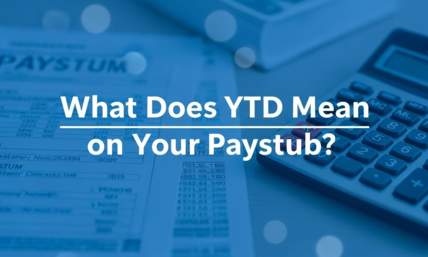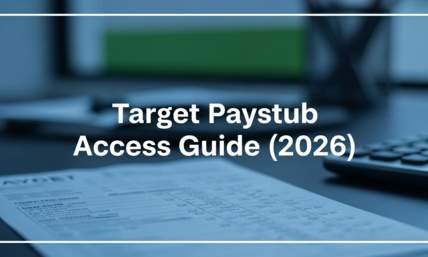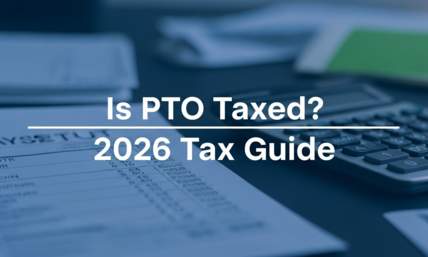Can I Cash My Employees Checks?
Operating your own business can be a rewarding experience, especially when it begins to grow. While being an employer has its impact, it also comes with its setbacks. Every now and then, you generate payroll for your employees.
But what do you do when an employee refuses to cash their paychecks into their bank account? You may be wondering if there is some way that you can solve this problem. To maintain clear payroll records, you can create pay stubs for every payment issued.
In the following article, we will explore the checks subject and how much time you have to deposit checks into a bank account.
You'll learn what happens if the cash check goes unclaimed. It also includes how uncashed checks, whether business checks, income tax refund checks, and government and payroll checks, should be handled. Understanding these helps employers handle uncashed funds right away.
- Can You Cash a Check Without a Bank Account?
- How To Cash My Payroll Check Online?
- What Happens When You Don't Cash Checks?
- What Happens To Unclaimed Business Checks
- Check Cashing: How To Claim It
- Can I Keep The Money?
- Can I Pay My Employees In Cash or a Debit Card?
- How To Use Check Cashing Services
- How Can I Make Sure Checks Are Cashed?
- Final Thoughts
Can You Cash a Check Without a Bank Account?
When it comes to cashing a check without a bank account, there is very little that the employer can do. While asking "how to cash a check" might seem like a simple solution, it is not always possible. Specifically, when a third party, such as a family member, a trusted friend, or any other person, tries to cash it on behalf of your employees.
You will need to seek other means to ensure the personal checks are paid into their bank account. Mostly, the checks will go void after 180 days, which means you could be charged additional fees to reissue. However, if your employee continues to neglect their checks, then the money is still legally theirs.
It can be claimed at their request once they are able to verify their identities. Unfortunately, this does not mean that you can decide the fund to cover any additional charges. Because there is little an employer can do to ensure the check is cashed into a bank account.
What you can do is adopt a policy to encourage it. While this may sound somewhat counterintuitive, it is the only thing you are legally allowed to do. You cannot cash the checks yourself or force your employees to open a direct deposit.
How To Cash My Payroll Check Online?
As an employee, if you fail to cash your checks into your bank account, then the cash checks will become stale-dated. This means the money will be held by the company until the check is voided. In most cases, there is a definite time limit in place before this can happen.
Most cash checks are void after a period of 180 days. Sometimes, an employee might attempt to cash a check without a bank account, which could make things complicated. This depends on the issuing bank and the check amount.
In such situations, you may need to use licensed check cashing services. Another option is to visit a check-cashing store that accepts personal checks, business checks or government checks. However, note that limits vary based on the provider.
What Happens When You Don't Cash Checks?
However, this does not mean that the check is then uncashable. The employee in question is still entitled to the pay and can ask for the check to be reissued. This means they will receive a replacement check to be cashed.
Of course, the employee will not be able to cash both the original and replacement checks. The original will be voided and a stop payment process will take place. Because of this, most employees will ask for the original check to be destroyed.
The issuing banks will also not accept a check that has been voided or that is over 6 months old. However, many banks do have different service policies, which means some branches may accept checks despite their age and status. Some employees prefer check deposit or direct deposit options to avoid these issues.
These digital payments allow funds to reach their checking account or savings account quickly and hassle-free. This makes income tax refunds, insurance settlements, and cashing government checks easier.
What Happens To Unclaimed Business Checks
When employees do not claim their checks, the company will usually hold the money until it can be claimed. However, after a certain amount of time has passed, the check and the amount of money it represents will be reported to the state as abandoned. This means the funds in the checking or savings account will go into a state-held unclaimed property account.
This process is called escheatment, and it involves the account being placed on the state's books until it is claimed. During this time, the state will send out notices about the unclaimed property. It can then be retrieved by the employee once they have confirmed their identity.
Check Cashing: How To Claim It

To access such funds, employees usually need to provide proper identification. These include a government-issued photo ID or driver's license to verify ownership of the payer’s account. Depending on the situation, the employee might also be able to check online through the state's unclaimed property portal.
However, this does not mean that the employee will be able to claim any interest that the account has acquired. These funds are now the property of the state. Instead, they will receive the same amount of money they were originally owed before the original escheatment.
This is also true if the payment originated from income tax refunds, insurance settlements, or money orders. Such payments are governed by similar unclaimed property laws.
Can I Keep The Money?
If an employee does not claim their check, then you have no legal claim over the money they have neglected. This means you cannot keep the money or transfer it to your company's bank account. If you do, you could be charged with theft, as the money is still the legal property of the employee.
Even if you hold a paper check, payroll check, or business check, the funds belong entirely to the employee. They get to decide to cash the check.
Your business will need to hold the money until the allotted time is over. After which, you can send a report to the state treasurer notifying them about the abandoned property.
Can I Pay My Employees In Cash or a Debit Card?
As the employer, you can pay wages by depositing cash checks, using debit cards or through a PayPal account, and in certain cases, cash. However, this depends on whether the employees can access their complete pay without additional fees and consent to the method.
Employers are required to maintain consistent payment practices. They should also comply with applicable wage laws. However, you're not legally required to offer the same payment method to all employees. Additionally, if you're wondering about the rules or myths regarding holding an employee’s first paycheck, it's important to know the facts.
But what if you prefer not to deal with check-cashing delays or employees who do not cash checks? Paying through digital payment platforms, such as PayPal, prepaid cards, or Ingo Money platforms, can be a convenient option. These money services make it easier for employees without a bank account to access their wages instantly. You can use a service app to cash a check and even deposit your check amount directly into your bank account. However, they may not meet wage payment regulations in all states.
While employers may choose to pay cash to employees, it's not legally mandated to do so upon request. This can make keeping track of the account both complicated and problematic. If you don't want to give your employees physical cash, this is not the best option for your business.
Paying an employee in cash and need a digital record? Use the 123 Paystub approach to create a downloadable pay stub you can print or email instantly.
How To Use Check Cashing Services
If your company wants to maintain secure and traceable payments, use a check cashing service provider. Another option is mobile check deposit apps like the Ingo Money App. It may be safer than handling large amounts of physical cash.
These digital options help employees receive funds in their checking account, prepaid card, or PayPal. While maintaining accurate payment records for your business.
How Can I Make Sure Checks Are Cashed?
While you are prohibited from forcing your employees to open a direct deposit, here is what you can do:
-
Encourage workers to use check cashing services, mobile check deposit, or a traditional bank account.
-
Implement policies to ensure the checks (including government checks) are properly cashed. It could be within a period of 30 days.
-
Offer employees enough time to organize and deposit their cash checks.
-
Speak with your employees about the importance of getting their checks cashed.
-
Encourage using the money services via an app service to cash a check.
Clear communication, easy access to check cashing stores, and flexible payment options work well. PayPal or Ingo Money may save your business time and prevent uncashed paychecks from becoming an issue.
Final Thoughts
Uncashed or hard-to-cash checks are a lot more prevalent than most people think. Understanding how they are processed and why employees should get their cash immediately is essential. Encouraging timely deposits of cash not only prevents payroll delays but also reduces the risk of unclaimed wages. Having the right check-cashing services is also an added advantage for both employers and employees.
The best way to keep track of uncashed checks is to have a well-maintained and up-to-date payroll system. Create a pay stub with a check stub generator and make your payments easy to track.















